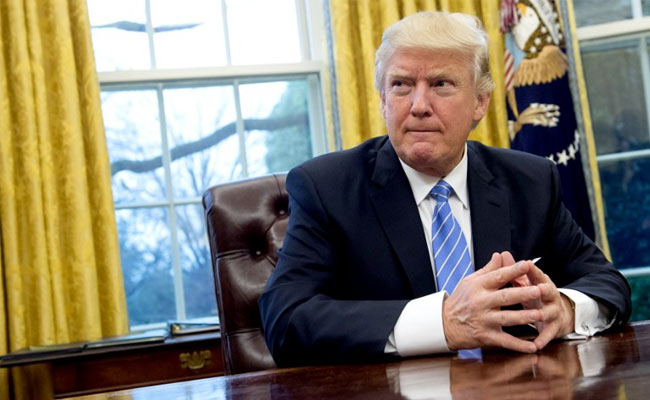The World of Books
The old adage tells us we are what we eat. Whatever about that, it is certainly true that, intellectually at least, we are what we read.
This being the case, I was not unnaturally curious about how books might have shaped the mind and imagination of the new president of the United States.
What are his favourite books, or the books that he greatly admires? Unlike, say John F. Kennedy, the president is not (so it seems) a reading man; he prefers to spent his after-dinner evenings and early mornings watching cabled news channels whose views reflect his own, and in tweeting au courant policy statements to the wider world from his sofa or bed. Television, which he watches continually from six in the morning, even over his lunch, is his essential intellectual feed. It is not a matter of ‘reality TV’. For Trump, TV is reality.
However, he has read up on topics in the past – China, for instance. On one occasion he astonished a reporter by rattling off a list of 20 books on modern China, presumably in a business and political context.
Aside from that, however, I understand – that is I do not state as a fact, or even an alternative fact, but merely what my understanding is – that two books have great influenced him. These are Erich Marie Remarque’s novel All Quite on the Western Front, and Sun Tzu’s The Art of War.
Remarque’s novel, originally published in 1929, was one of a series of anti-war novels and memoirs that appeared a decade after the Great War concluded. It was resolutely pacifist, so much so that it was hated by the National Socialist Party, and was among the books burned in the appalling bonfire in Nuremberg when decadent works were destroyed under Goebbels direction.
Remarque, a cradle Catholic, changed his name back to its original French form. Along with Robert Graves’ Goodbye to All That, the poems of Wilfred Owen and Siegfried Sassoon, and the novels of Barbusse, his recreation of war marked a generation.
The US, coming late into the war, suffered less than the devastated European nations. But the novel describes how a generation of young men were betrayed and destroyed by the false claims of patriotism and nationalism – the very watch words of the new administration.
It was to prevent another continental war that drove the creators of the European Union, not trade or free migration. It was a effort to preserve the peace by generation who had known war, and save future generations from all the horrors they had witnessed. But for Trump and other nationalists all across Europe, “it is easy to sleep on another man’s wound”.
It is really difficult to imagine that Trump also holds with Remarque’s views. One might imagine that he seen and been impressed by Lewis Milestone’s classic 1930 film; but in fact it is more likely that Trump would have had in mind the 1979 made for TV movie, though that was not of the same quality.
Waste
Does Trump believe in the waste of war? It seems unlikely, given his other favourite book The Art of War – clearly echoes in his own book The Art of the Deal – by Sun Tzu – he of that maxim-justifying terror: “Kill one, terrify a thousand.”
This book a manual of war written in 514 BC, which of late has become a businessman’s handbook, with the application of martial strategies and tactics to commercial life. But this idea, that business is war, its aim the annihilation of an ‘enemy’ and the seizure of his goods and ideas, is a chilling one.
It suggests that far from espousing an untroubled world of quite trade and exchange, Trump (like some 19th-Century social Darwinist) sees life as a perpetual struggle for existence, resolved only by the survival of the fittest, Donald Trump himself being, in his own opinion, the very fittest of all to survive. It is what the dinosaurs believed too, and they had the advantage of having two brains.
These literary choices still leave me puzzled and bewildered about Trump’s world view. But if I am confused, it is a confusion shared by countless others.


